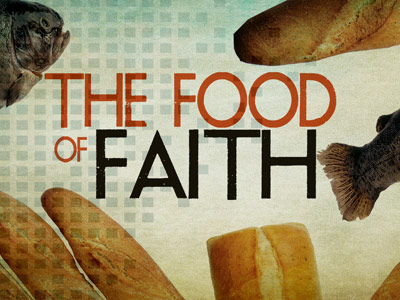-
When God Restores What The Locusts Eat
Contributed by Marilyn Murphree on Apr 6, 2007 (message contributor)
Summary: This message brings a word of hope in the midst of devastation. God can restore what the locust has eaten.
April 2007
“When God Restores What the Locusts Eat”
INTRODUCTION: Joel was a prophet to the southern kingdom of Judah between 835-796 B.C. about the same time Elisha was prophesying to the Northern Kingdom, Israel in 848 BC. Joel speaks to people who had become very complacent and self centered. They took God for granted and worshiped idols. They had become insensitive to the condition of their spiritual lives. Joel warned them that sooner or later their sinful lifestyle would bring down the judgment of God, yet their physical and moral senses were dulled to the point that they seemed oblivious to their need. Why did they need God? Up to this time they had been experiencing a great abundance agriculturally--they had plenty of grain, corn and wine and oil. They didn’t want for a thing. Occasionally they would go to the temple to offer the sacrifices that were required and go through the outward religious motions. But it didn’t really mean much to them.
As they continued on this downward spiral, a crisis occurred that stopped them right in their tracks. A terrible plague of locust swarmed into the land and nothing was left in the fields--once overflowing, they are now empty of crops. It affected the animals as well as the agriculture of the area. The magnitude of the destruction was so devastating that it would take a long time to recover from it.
Joel comes on the scene at this time to speak not only a message of Judgment to these wayward people, but also a message of hope.
Today’s scripture speaks to us as well in several ways.
1. A Word of Hope in the Midst of Devastation: I wonder how these people felt as they looked around at the devastation in their lives? Maybe they felt hopeless that they could do nothing to change the way things were. Maybe they felt depressed. Maybe they felt like giving up completely. Or some may have felt like working very hard to do something to change things.
How do you feel when things hit your life like a destructive swarm of locust? Scripture points out here that what the swarming locusts didn’t ruin the other types did. In the King James Version the four types mentioned are: the locust, the cankerworm, the palmerworm, and the caterpillar. These represent destruction of different types--stripping, cutting, swarming, and hopping. It is like when things hit us we might say, “well when one problem gets taken care of I was hit from a different direction. What each of the locust groups had left behind, the others has eaten. Problems came in from all directions and just devoured everything.
There are seasons in our life that involve famine and devastation and then there are times of restoration. The seasons of famine have a divine purpose in our lives and they accomplish things that only these hard places can accomplish. Sometimes God can’t get our attention when everything is going along fine.
Sometimes we wonder where the bad things come from. What is their source? Is it God’s judgment? Is it just natural circumstances? Does it come from our own bad choices? Or does it happen just because we are in the wrong place at the wrong time?
We can probably answer, “All of the above.” Sometimes from our personal experiences we can say that suffering is a direct result of our own self destructive choices.
ILLUSTRATION: A woman told a counselor how her relationship with her husband had gone sour and she couldn’t understand what had happened. As the counselor listened to her story, it became obvious that this relationship all centered around her selfishness and eventually that is what destroyed it. She couldn’t see it.
The people of Judah couldn’t see how they were contributing to the problem. And often we can’t see it either.
Sometimes things just happen through what is called “fortuitous circumstances.” The locusts roar through our lives and we are puzzled by it all. Natural disasters, floods and earthquakes, invade our communities many times and we could have done nothing to prevent it. Sickness and disease invade a person’s life and health is ruined. Many times there was no way it could have been prevented. Sometimes job losses come to the best workers. Sometimes accidents just happen.
At times we are in the wrong place at the wrong time.
ILLUSTRATION: An Ohio State student was standing in the wrong place the other day and was shot and killed. A good student, there was no explanation for this tragedy.
Joel brings a message of hope to people experiencing just such circumstances. This message of hope is for us today as well. However, we find it difficult to believe that hope when it comes to us when we are facing pain, sorrow, or loss.

 Sermon Central
Sermon Central



